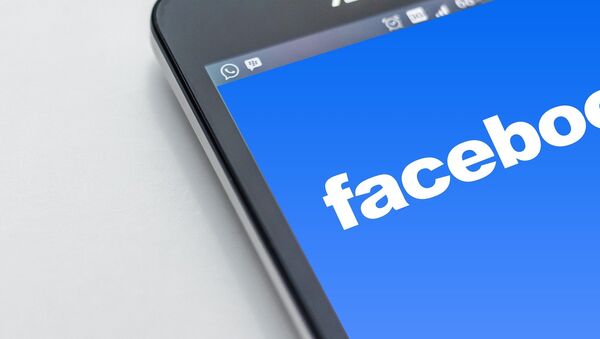An Indian social media analyst has termed a decision by Facebook to overlook its own rules on hate materials in favour of the ruling party as "ethically deplorable".
"Ethically, it is deplorable for a platform like Facebook, which has the trust of more than half of our internet base in India, to take away the freedom of choice from its users. When a platform chooses to display material such as hate speech over other content that the user might ordinarily have preferred, the platform is going out of the neutral zone into a partisan role", Shalini Narayanan, an independent communications consultant told Sputnik.
Narayanan opined the fact that Facebook choosing not only to allow such content to occupy space, but give such content preference over others was "deeply disturbing".
The report in the American daily cited unnamed Facebook insiders claiming how it was colliding with Indian politics. It said the social media platform was going soft on BJP members for fear of damaging business prospects in its biggest market.
The digital media analyst said that athough social media has brought about many benefits, in the political context the problem of forming "echo-chambers" or getting into homogenous groups to amplify one particular belief means its users don't receive a diversity of opinions on issues.
Narayanan said a lack of media literacy, information overload, and lack of discrimination contribute to the spread of fake news.
"Instances where fake news on social media has led to actual loss of lives in the real world abound but the phenomenon came to be noticed in India in 2018 with the lynching of suspected child-lifters in many states. During the COVID pandemic fake news, spread through social media, has again caused immense damage to the health and well-being of many citizens", she explained.
Shalini Narayanan, who co-authored one of the early books on the impact of social media in India, said though there were laws to take on violations, "it is the will to implement those already existing (laws), which is important". She called for firming up the data privacy and protection laws in India.
As the controversy over Facebook’s bending of hate-speech rules broke out, Shashi Tharoor, an opposition Congress party lawmaker, who heads a Parliamentary Panel on Information Technology, indicated plans to summon the company's representatives to seek their explanation.
Facebook, on the other hand, came up with a clarification, "We prohibit hate speech and content that incites violence and we enforce these policies globally without regard to anyone’s political position or party affiliation".
India had nearly 700 million internet users by 2020 and the figure is projected to grow to over 974 million in the next five years. The country has one of the largest subscriber-bases for Facebook and WhatsApp. While Facebook had 346.2 million subscribers, WhatsApp had 340 million in 2020.




